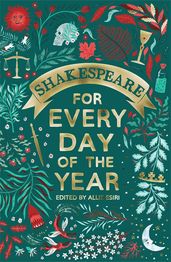Poems about truth for National Poetry Day
The theme for 2019's National Poetry Day was truth. Here we have gathered a selection of poems that convey different ideas of ‘truth'.

In the first week of October we celebrate National Poetry Day, a day to discover, enjoy and share poems with one another. The theme for 2019's celebration was 'truth'. Many poets have written about this topic but, as the poems below show us, truth is a relative concept, unique to the individual, and can be found in many different places.
Discover our edit of the best poetry books.
A Brave and Startling Truth
Maya Angelou
We, this people, on a small and lonely planet
Traveling through casual space
Past aloof stars, across the way of indifferent suns
To a destination where all signs tell us
It is possible and imperative that we learn
A brave and startling truth...
Tell me the truth about love
W H Auden
Some say love's a little boy,
And some say it's a bird,
Some say it makes the world go around,
Some say that's absurd,
And when I asked the man next-door,
Who looked as if he knew,
His wife got very cross indeed,
And said it wouldn't do
Does it look like a pair of pyjamas,
Or the ham in a temperance hotel?
Does its odour remind one of llamas,
Or has it a comforting smell?
Is it prickly to touch as a hedge is,
Or soft as eiderdown fluff?
Is it sharp or quite smooth at the edges?
O tell me the truth about love.
Our history books refer to it
In cryptic little notes,
It's quite a common topic on
The Transatlantic boats;
I've found the subject mentioned in
Accounts of suicides,
And even seen it scribbled on
The backs of railway guides.
Does it howl like a hungry Alsatian,
Or boom like a military band?
Could one give a first-rate imitation
On a saw or a Steinway Grand?
Is its singing at parties a riot?
Does it only like Classical stuff?
Will it stop when one wants to be quiet?
O tell me the truth about love.
I looked inside the summer-house;
It wasn't over there;
I tried the Thames at Maidenhead,
And Brighton's bracing air.
I don't know what the blackbird sang,
Or what the tulip said;
But it wasn't in the chicken-run,
Or underneath the bed.
Can it pull extraordinary faces?
Is it usually sick on a swing?
Does it spend all its time at the races,
or fiddling with pieces of string?
Has it views of its own about money?
Does it think Patriotism enough?
Are its stories vulgar but funny?
O tell me the truth about love.
When it comes, will it come without warning
Just as I'm picking my nose?
Will it knock on my door in the morning,
Or tread in the bus on my toes?
Will it come like a change in the weather?
Will its greeting be courteous or rough?
Will it alter my life altogether?
O tell me the truth about love.
“Truth”, said a traveller
Stephen Crane
“Truth," said a traveller,
“Is a rock, a mighty fortress;
“Often have I been to it,
“Even to its highest tower,
“From whence the world looks black.”
“Truth," said a traveller,
“Is a breath, a wind,
“A shadow, a phantom;
“Long have I pursued it,
“But never have I touched
“The hem of its garment.”
And I believed the second traveller;
For truth was to me
A breath, a wind,
A shadow, a phantom,
And never had I touched
The hem of its garment.
Sonnet 138
William Shakespeare
When my love swears that she is made of truth,
I do believe her though I know she lies,
That she might think me some untutor'd youth,
Unlearned in the world's false subtleties.
Thus vainly thinking that she thinks me young.
Although she knows my days are past the best,
Simply I credit her false-speaking tongue,
On both sides thus is simple truth supprest:
But wherefore says she not she is unjust?
And wherefore say not I that I am old?
O love's best habit is in seeming trust,
And age in love, loves not t'have years told.
Therefore I lie with her, and she with me,
And in our faults by lies we flattered be.
Shakespeare for Every Day of the Year

This sonnet was taken from Allie Esiri's Shakespeare for Every Day of the Year. William Shakespeare wrote at least 37 plays, 154 sonnets and a handful of longer poems and you can discover them all here, in this beautiful gift anthology of Shakespeare's works
Loving in Truth
Sir Philip Sidney
Loving in truth, and fain in verse my love to show,
That she, dear she, might take some pleasure of my pain,—
Pleasure might cause her read, reading might make her know,
Knowledge might pity win, and pity grace obtain,—
I sought fit words to paint the blackest face of woe;
Studying inventions fine her wits to entertain,
Oft turning others' leaves, to see if thence would flow
Some fresh and fruitful showers upon my sunburn'd brain.
But words came halting forth, wanting invention's stay;
Invention, Nature's child, fled step-dame Study's blows;
And others' feet still seem'd but strangers in my way.
Thus great with child to speak and helpless in my throes,
Biting my truant pen, beating myself for spite,
‘Fool,' said my Muse to me, ‘look in thy heart, and write.'
Tell all the truth but tell it slant –
Emily Dickinson
Tell all the Truth but tell it slant –
Success in Circuit lies
Too bright for our infirm Delight
The Truth's superb surprise
As Lightning to the Children eased
With explanation kind
The Truth must dazzle gradually
Or every man be blind –
A Legend of Truth
Rudyard Kipling
Once on a time, the ancient legends tell,
Truth, rising from the bottom of her well,
Looked on the world, but, hearing how it lied,
Returned to her seclusion horrified.
There she abode, so conscious of her worth,
Not even Pilate's Question called her forth,
Nor Galileo, kneeling to deny
The Laws that hold our Planet 'neath the sky.
Meantime, her kindlier sister, whom men call
Fiction, did all her work and more than all,
With so much zeal, devotion, tact, and care,
That no one noticed Truth was otherwhere.
Then came a War when, bombed and gassed and mined,
Truth rose once more, perforce, to meet mankind,
And through the dust and glare and wreck of things,
Beheld a phantom on unbalanced wings,
Reeling and groping, dazed, dishevelled, dumb,
But semaphoring direr deeds to come.
Truth hailed and bade her stand; the quavering shade
Clung to her knees and babbled, "Sister, aid!
I am – I was – thy Deputy, and men
Besought me for my useful tongue or pen
To gloss their gentle deeds, and I complied,
And they, and thy demands, were satisfied.
But this – " she pointed o'er the blistered plain,
Where men as Gods and devils wrought amain –
"This is beyond me! Take thy work again."
Tablets and pen transferred, she fled afar,
And Truth assumed the record of the War...
She saw, she heard, she read, she tried to tell
Facts beyond precedent and parallel –
Unfit to hint or breathe, much less to write,
But happening every minute, day and night.
She called for proof. It came. The dossiers grew.
She marked them, first, "Return. This can't be true."
Then, underneath the cold official word:
"This is not really half of what occurred."
She faced herself at last, the story runs,
And telegraphed her sister: "Come at once.
Facts out of hand. Unable overtake
Without your aid. Come back for Truth's own sake!
Co-equal rank and powers if you agree.
They need us both, but you far more than me!"


